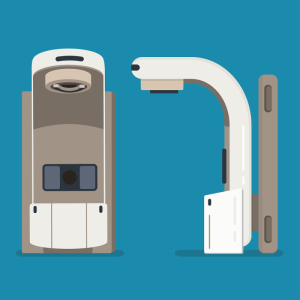por
Thomas Dworetzky, Contributing Reporter | April 10, 2017
When prostate cancer is found in older men, they are more likely to get radiation therapy if their doctors own the equipment.
A new study looked how “utilization and cost of care differ for men diagnosed with prostate cancer in a self-referral practice (SRP) compared to a traditional urologic practice,” according to senior study author Dr. Karen Hoffman of the University of Texas MD Anderson Cancer Center in Houston.
Their findings appear in the journal
Prostate Cancer.
The researchers found that in cases diagnosed by urologists who owned machines, patients were 61 percent more likely to receive radiation treatment,
according to Reuters.
"For patients with very favorable prostate cancer, our findings suggest that urologist ownership of radiation equipment may contribute to unnecessary treatment," Hoffman told the news service.
On the other side, however, in those “patients with disease with aggressive features, our findings suggest that urologist ownership increases correct treatment, meaning that these patients who need treatment are more likely to receive it if they are diagnosed by a urologist with an ownership interest in radiation therapy," she said.
The researchers looked at a total of 17,982 men aged 66 years and older diagnosed with localized prostate cancer from 2006 to 2009. They then evaluated a total of 13 SRPs in the state of Texas, looking for the distribution of different types of treatments for prostate cancer.
Men diagnosed in SRPs had upfront treatment (versus watchful waiting/active surveillance) at 92.7 percent, compared to those diagnosed by non-owner tradition practices, at 89 percent.
Those at SRPs were more likely to be treated with external beam radiation at 47.4 percent versus 34.1 percent at traditional practices, according to the study.
“This persisted for both favorable- and unfavorable-risk cancer,” noted the authors.
Annual care costs for prostate cancer at SRPs were also higher by an average of $2460.
One limitation of the study was that patient preferences and other issues such as urinary, bowel and sexual functions weren't taken into account.
The findings are in line with other studies about the impact on treatment options from equipment ownership.
"Allowing physicians to self-refer may lead to unnecessary treatment and added health care costs to society and patients," Dr. Quick-Dien Trinh, of Brigham and Women's Hospital and the Dana Farber Cancer Institute Prostate Cancer Program, told Reuters.
Trinh was not an author on the study.
